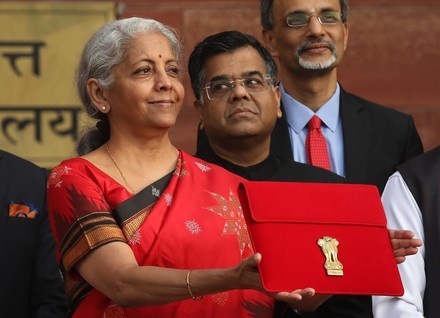|
53 percent of Indian household savings are kept in bank deposits. While senior citizens and retirees prefer fixed deposits because it gives them a sense of security and regular income, younger investors with a higher risk appetite consider fixed deposits for diversification and safety.
Features of a Fixed Deposit
It can be opened with banks, non-banking financial companies and post-offices
Fixed Tenure - Ranging from 7 days to 10 years
Fixed interest rate through the tenure of the investment. Different institutions have different rates, but the general range is 3 percent – 6.6 per cent per annum.
Senior citizens (above 60 years of age) receive 0.25 per cent - 0.75 per cent more than the regular interest rate.
For most institutions, the minimum amount for a deposit is ₹10,000
Two or more individuals can jointly open a fixed deposit
What are the types of Fixed Deposits?
Cumulative Fixed Deposit: The interest on the fixed deposit is accumulated all through the tenure of the deposit and then paid to the investor at the time of maturity.
Regular/Non-cumulative Fixed Deposit: The most common type of deposit, in this option the interest is paid to the investor monthly, quarterly, or half-yearly. Investors especially retirees who want a regular income prefer this option.
Special Fixed Deposit: These deposits are offered for a fixed tenure and do not allow any premature withdrawal of funds. They provide a slightly higher interest rate.
Corporate Fixed Deposit: This is when a fixed deposit is opened with a corporate. While these deposits earn a higher return, they are riskier than a bank fixed deposit. You look at the credit rating of a corporate FD before making an investment decision.
Tax-saving Fixed Deposits: If you invest in this type of deposit you can get a tax exemption up to ₹1.5 lakh per year on the principal invested. However, this deposit has a lock-in period of 5 years and you cannot withdraw your money before maturity.
There are special NRE and NRO Fixed Deposits for non-resident Indians
Who can open a Fixed Deposit?
Indian resident
Non-Resident Indian
Senior citizen
Minors aged 1 to 15 years (A guardian or parent must co-sign the investment papers)
Society
Club
Company
Sole proprietor
Partnership firm
Advantages of Fixed Deposits
Assured returns: You earn a fixed interest on fixed deposits.
Tenure flexibility: You can choose the tenure of a deposit ranging from 7 days to 10 years, depending on your financial requirements.
An additional source of income: If you invest in a non-cumulative deposit, you receive regular interest every month, quarter, semi-annually or annually depending on your preference.
Loan against deposit: You can avail a loan against the security of your fixed deposit up to 90 percent of your principal and accrued interest.
Safe investment: Fixed deposits are not impacted by equity market volatility and hence considered to be a safe investment and good way to diversify your portfolio. Usually fixed deposits give a slightly better interest rate than savings accounts.
Easy to open: Opening a fixed deposit is relatively easy and can be done online or offline with an institution of your choice.

Limitations of Fixed Deposits
Liquidity: Your money remains locked in for a fixed tenure. While this makes it difficult to access the money at any given time, in case of an emergency there is an option for premature withdrawal by paying a penalty of around 1 per cent of the interest rate.
Fixed interest rate: The interest rate remains the same throughout the tenure. Over time if inflation increases and is more than the fixed deposit rate, there is wealth erosion.
Minimal tax benefits: You do not get any tax benefit from investing in fixed deposits. Only tax saving deposits have a tax benefit on the interest paid out.
Risk of default: While losing your money invested in a fixed deposit is very rare, the recent crises in some NBFCs and co-operative banks is a good lesson for you to opt for credible well-established institutions for a deposit. If you have opened fixed deposits with various institutions an amount of Rs 5 lakh (principal and interest) per institution is guaranteed by the Deposit Insurance and Credit Guarantee Corporation (DICGC). If the institution goes bankrupt, you will be able to recover only this guaranteed amount.
What do I do when my Fixed Deposit tenure ends?
When your fixed deposit matures, you have the following options
You receive your principal back and if you have chosen the cumulative interest option you receive the accumulated interest as well. The money is directly credited into your savings account.
You re-invest your principal or principal plus interest accrued into a new fixed deposit.

Bottom Line
Investing in a fixed deposit is a safe and income-generating option. While the returns from a deposit barely beat inflation, the security it provides to your capital makes it a good way to diversify your portfolio. While taking a fixed deposit you must compare the interest rates of various institutions and their credit rating. It is advisable to not opt for an institution only because it is providing a higher interest rate.
FD can be a part of the security cushion of your portfolio and considering that it does not beat inflation you need to invest in assets which help in wealth creation.
This article is written by Namrata Patel for Basis.
Basis is a first-of-its-kind platform, aimed at enabling women to achieve financial independence through expert advice, in-app knowledge Boosters and supportive communities.
Everything you need to know about Sukanya Samriddhi Yojana
Nov 13, 2024
Financial Resilience: Lessons from the Women of House of the Dragon
Sep 2, 2024
5 Things You Should Know Before Taking a Loan 👩💼💸
Aug 21, 2024
The Pink Tax: Why Women Pay More for the Same Products 💸👩
Aug 14, 2024
Budget 2024: A Win or a Loss for Women? 🎉💼
Jul 25, 2024
Unlocking your go to guide to navigate Gold 🌟
Aug 28, 2023








